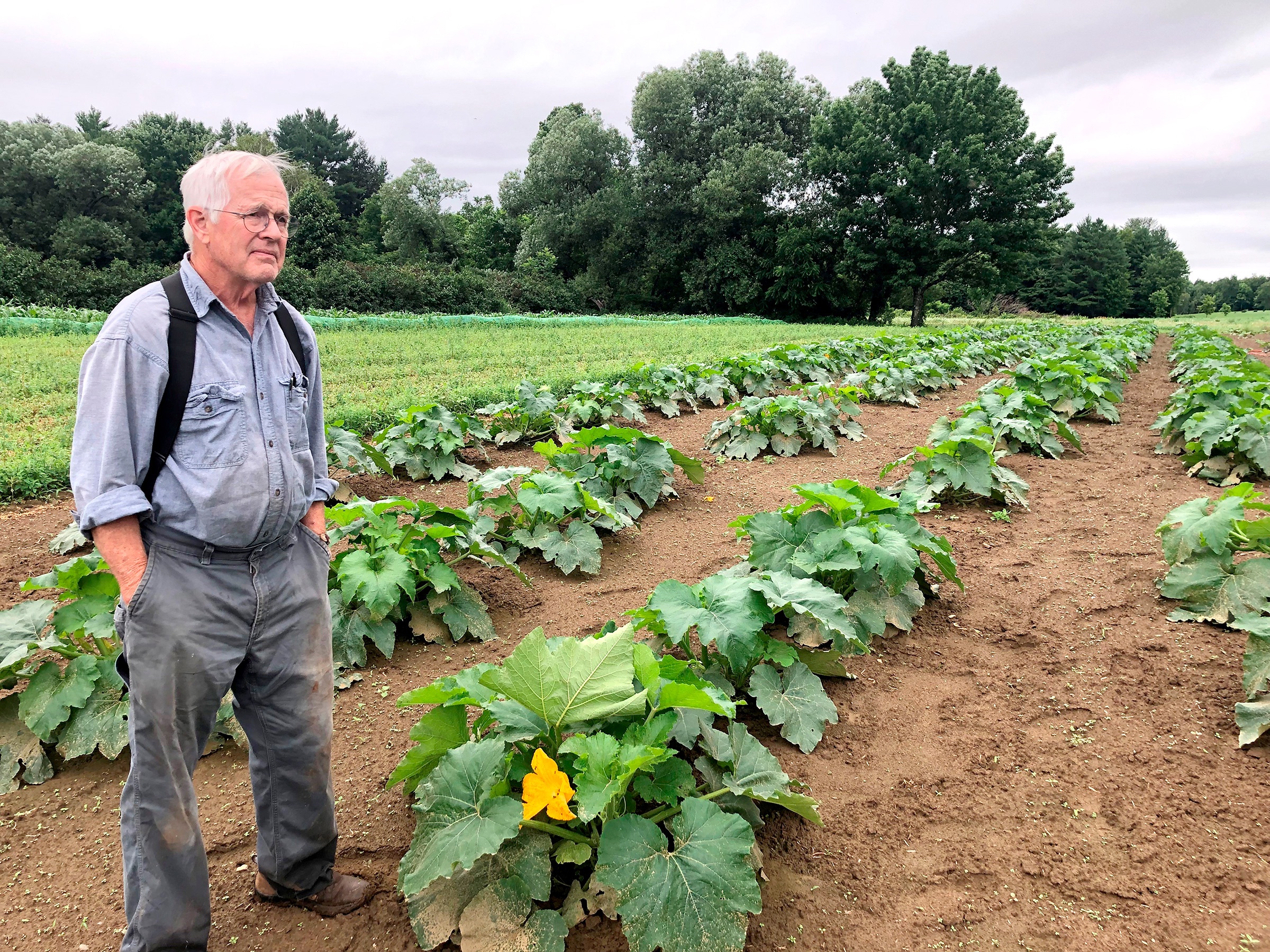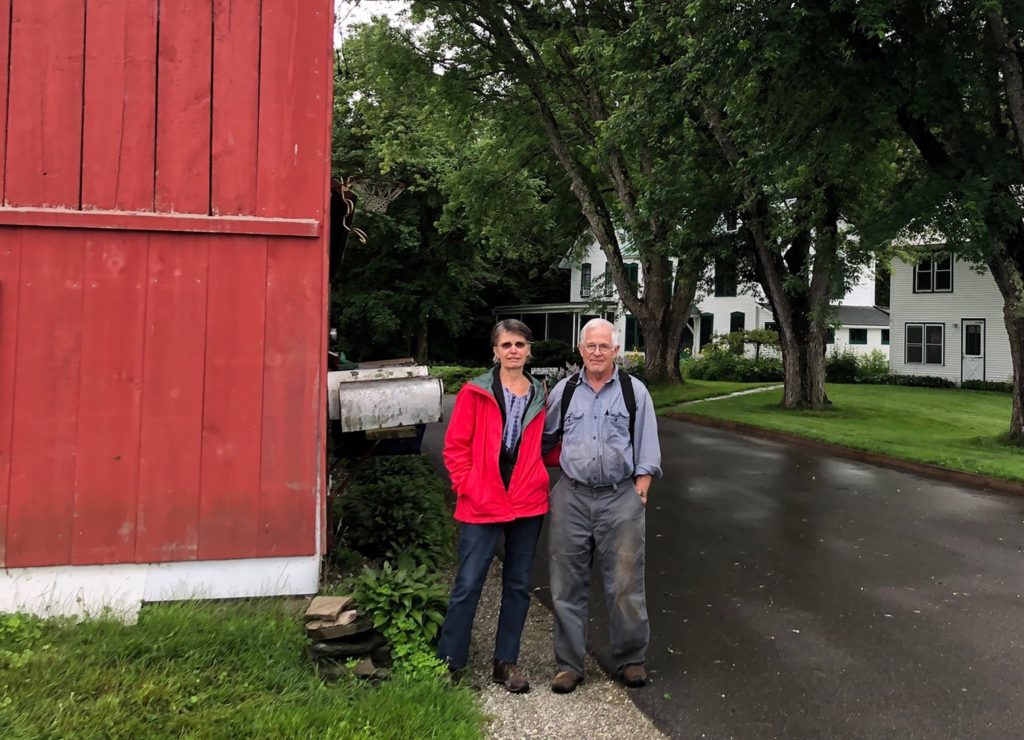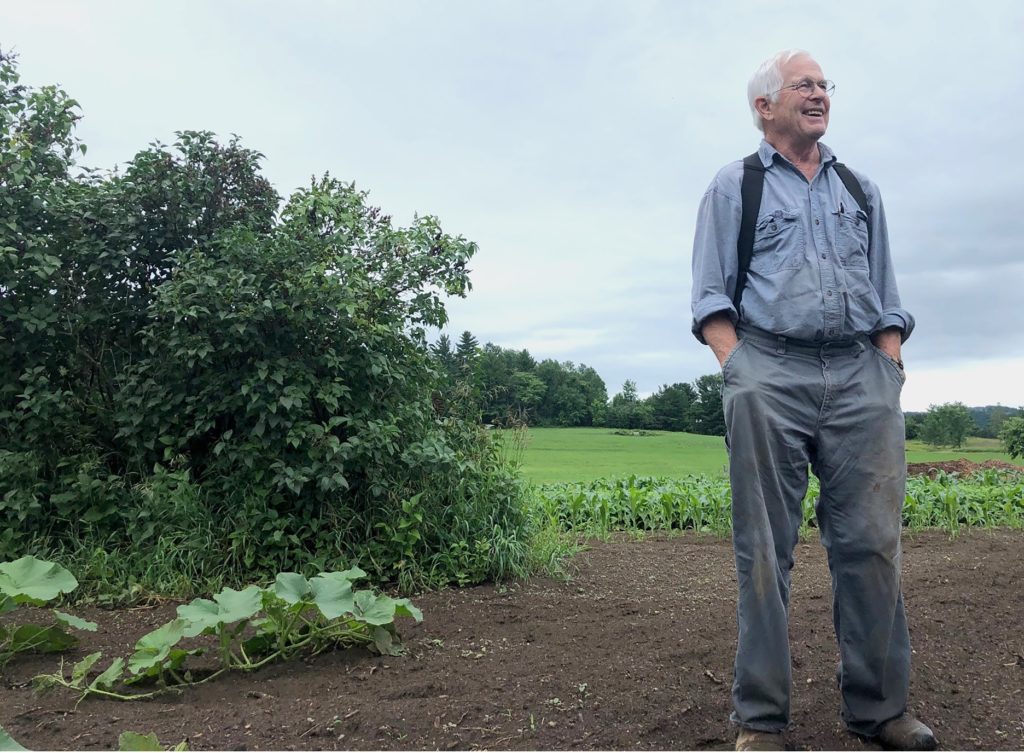
Nov 19, 2021
Historic Vermont farm now grows organic produce for charity
Charlie and Jean Siegchrist are owners and operators of the historic Barber Farm in Jericho, Vermont. The farm became the third settled property in the town when it was founded in 1774.
Fast forward to today, the farm is now a non-profit run by these Vermont natives whose mission is to “grow and give away tons of organic produce to help feed hungry Vermonters.”
A rich history

In 1868, Civil War Colonel Edgar Barber began farming with his wife at the Jericho property. Wounded in the war, his ability to farm was limited, and a cousin suggested that he capitalize on his beautiful rural setting by inviting city folk to stay at his picturesque farm to escape the hustle and bustle of urban life.
By the late 1800s, the Barbers were successful early pioneers of agritourism, hosting guests from all over the country. Jean’s family has managed the farm since 1942 when her father, a former farm employee, purchased the acreage and started a dairy.
Charlie and Jean married in 1973 and were living in Charlie’s hometown of Randolph, Vermont. It was there that Charlie began cultivating the land by growing strawberries on 14 acres.
“Once the house was built, he cared for the land, and started putting in strawberries. Lots of them,” Jean said, noting that he hand-planted 5,000 berries. Then in 1979, they returned to Jean’s hometown of Jericho to live at Barber Farm where the couple planted 70,000 berries in one year.
Giving back
The couple decided in 2009 to use the farm to serve their local community. They made their first large donation, 9,000 pounds of potatoes, to the Vermont Food Bank. For over a decade, the couple has dedicated the farm to growing several acres of organic vegetables for food banks. They have cultivated and donated peppers, tomatoes, cabbage, winter and summer squash, green and yellow beans, pumpkins, and more.
“I love it,” Charlie says. “Can’t wait to get going each day. Wake at dawn, walk the crops, come in at noon and nap and then work until supper.”
Their work is done alongside a devoted band of volunteers, including young adults from the Vermont Youth Conservation Corps who help harvest and donate vegetables to 425 client families designated by hospitals across the state. They also work with Salvation Farms, a gleaning organization.
“The pandemic has made people more interested in local foods,” Charlie said. “There are a lot of mouths to feed in this world.”
Charlie’s and Jean’s efforts are done without salaries or benefits and they “rely on the kindness of friends and strangers to get the produce to its needful recipients.”
Dedicated to preservation

In addition to providing fresh food donations, the couple is dedicated to protecting and improving the natural resources on and around their farm. Their crops are organically grown, with no synthetic fertilizer, weed or pest control. “Healthy crops come from healthy soil, which gives sustainability to our farm,” they said.
The Siegchrists worked with USDA’s Natural Resources Conservation Service to stabilize eroding log roads and stream crossings in their forest and discussed alternatives for combating invasive species. They also worked with NRCS to establish cover crops in their gardens to improve soil health.
Charlie and Jean are dedicated to protecting and improving the natural resources on the farm. Photo by Amy Overstreet, NRCS.
“Charlie wanted to plant trees and shrubs to help combat erosion, and he implemented the cover crops on his own,” said Danny Peet, NRCS soil conservationist. He also noted that there were cows previously wintering on the property via a leasing arrangement that Charlie had with another farmer.
“Now, with the animals gone in the winter, the land has healed on its own and is growing great grasses,” Danny said. “The rest is used for cropland to cultivate the vegetables.”
With fine, sandy soils, their conservation efforts are helping protect and improve the water quality in nearby Mill Brook to the Winooski River. The couple also sold development rights to ensure their acreage remains farmland forever through a permanent conservation easement.
“The families here before us weren’t just using the land, they were caring for it,” Jean said. It’s something the Siegchrists want to continue.
More Information
Each Friday visit local farms, ranches, forests, and resource areas through the USDA’s Fridays on the Farm stories. Meet farmers, producers and landowners who are working to improve their operations with USDA programs.
USDA offers a variety of risk management, disaster assistance, loan, and conservation programs to help agricultural producers in the United States weather ups and downs in the market and recover from natural disasters as well as invest in improvements to their operations. Learn about additional programs.
For more information about USDA programs and services, contact your local USDA service center.









